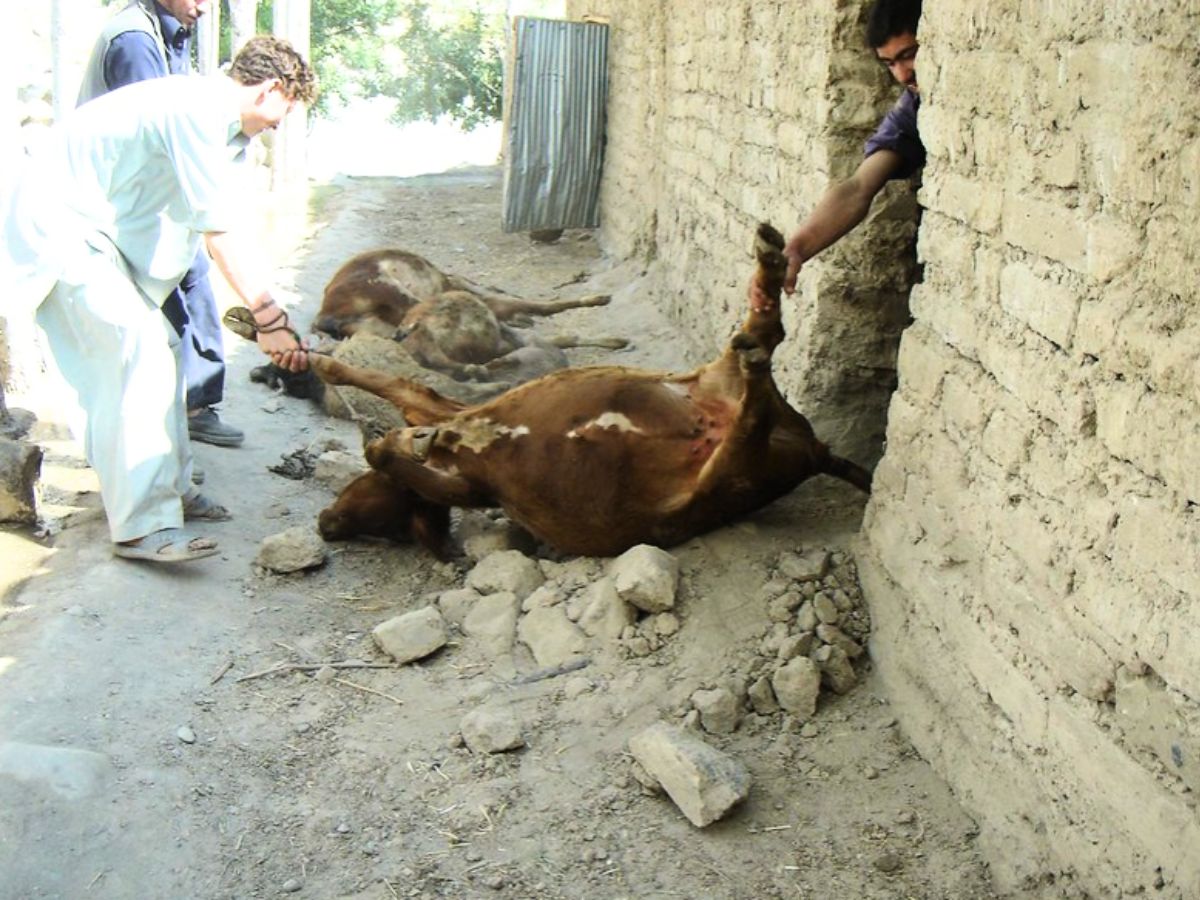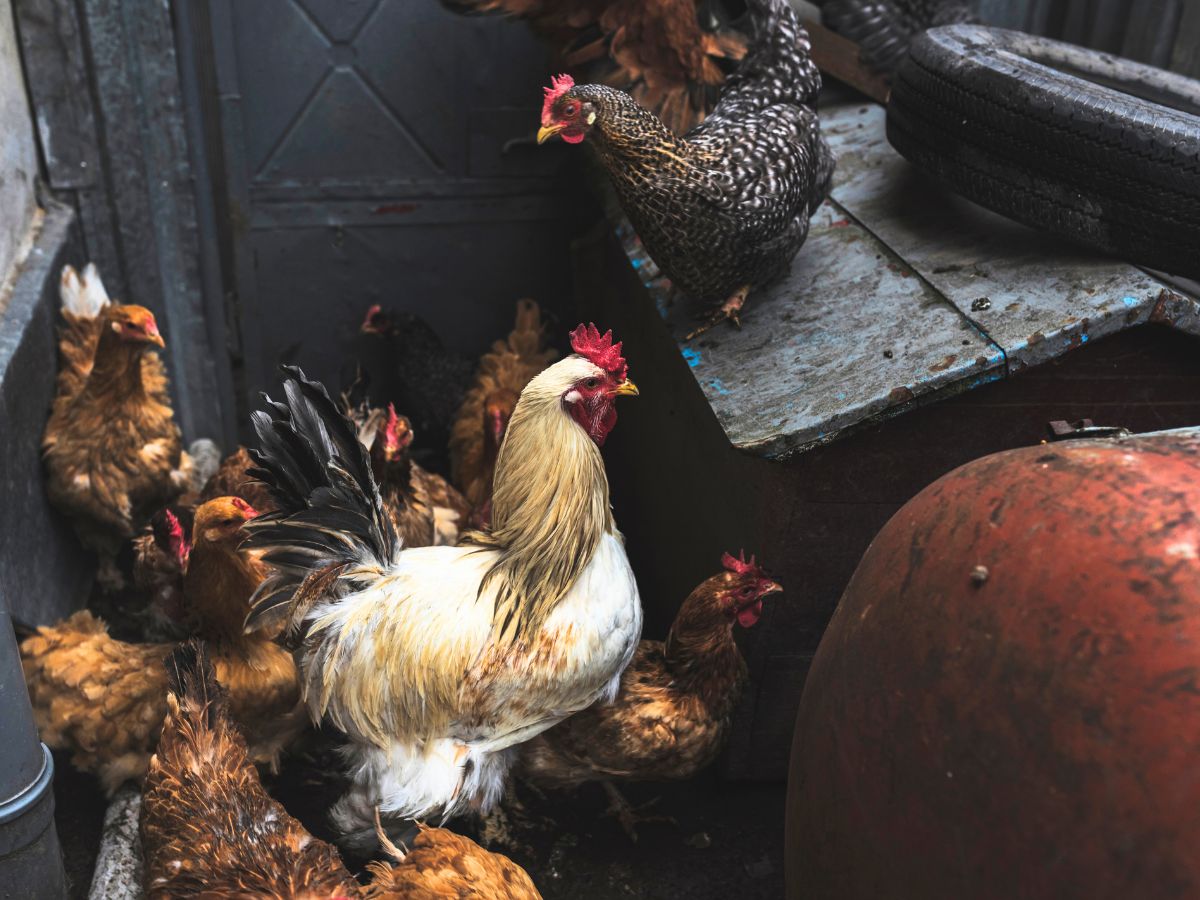Veganism: A Step Towards a World Free from Animal Cruelty
In a world that has become increasingly conscious of ethical choices and environmental impact, veganism has become a powerful movement towards a more compassionate and sustainable future. This lifestyle choice goes beyond just dietary preferences; it is a profound commitment to reducing animal cruelty, conserving natural resources, and promoting overall well-being. One of the critical aspects of adopting a vegan lifestyle is the focus on vegan protein sources, which not only sustain our bodies but also help reduce the demand for animal products, ultimately contributing to a world free from animal abuse.
The Rise of Veganism
Veganism is not a new concept, but it has gained significant momentum recently. People are now more aware of their dietary choices’ consequences and opting for plant-based alternatives over animal-derived products. This shift can be attributed to various factors, including increased awareness of animal rights, concerns about the environmental impact of animal agriculture, and a growing interest in personal health and well-being.
Animal Abuse: The Dark Side of the Food Industry

One of the primary driving forces behind the vegan movement is the desire to combat animal cruelty. The conventional food industry is riddled with stories of mistreatment, overcrowding, and inhumane conditions for animals raised for meat, dairy, and other animal products. From factory farming to the slaughterhouse, the lives of these animals are filled with suffering and pain.
Consider the life of a factory-farmed cow, constantly confined in a cramped space, subjected to painful procedures like dehorning and tail docking, and ultimately sent to a gruesome slaughterhouse. Similarly, egg-laying hens are often kept in battery cages so small they can’t spread their wings, while male chicks are often culled in a cruel and unnecessary process.
Such practices are not only ethically problematic but also raise concerns about the quality and safety of the products that come from these animals. In the pursuit of maximum profit, the welfare of animals is often compromised, leading to a cycle of abuse and exploitation.
The Environmental Impact of Animal Cruelty
Beyond animal welfare, the environmental consequences of animal agriculture are staggering. It’s no secret that the meat and dairy industries significantly contribute to climate change, deforestation, and water pollution. Livestock farming requires vast land, water, and food resources, leading to deforestation and habitat destruction. Moreover, the methane emissions from cattle contribute significantly to greenhouse gas emissions.
Using pesticides, fertilizers, and antibiotics in animal agriculture also harms the environment. These chemicals contaminate soil and water, damaging ecosystems and endangering wildlife and human health.
Health and Well-being
Veganism is not just about compassion for animals and environmental concerns; it also offers numerous health benefits. A well-planned vegan diet can provide all the necessary nutrients while reducing the risk of various health issues. Studies have shown that vegans tend to have lower cholesterol levels, lower rates of heart disease, and a reduced risk of certain types of cancer. A vegan diet can help maintain a healthy weight and improve overall well-being.
Vegan Protein: The Building Blocks of a Compassionate Lifestyle
One common misconception about veganism is that it needs more adequate protein sources. However, with the proper knowledge and dietary choices, it is possible to meet protein needs while adhering to a vegan lifestyle. Let’s explore some excellent vegan protein sources that sustain our bodies and contribute to a world free from animal cruelty.
Legumes
Legumes, such as lentils, chickpeas, and beans, are fantastic protein sources. They are versatile and can be used in various dishes, from soups and stews to salads and burgers. In addition to being protein-rich, legumes are also high in fiber, vitamins, and minerals, making them a staple in any vegan diet.
Tofu and Tempeh
Tofu and tempeh are soy-based products that are packed with protein. They are often used as meat substitutes in many vegan recipes. Tofu, in particular, takes on the flavours of the ingredients it’s cooked with, making it versatile for a wide range of dishes.
Nuts and Seeds
Nuts and seeds like almonds, peanuts, chia seeds, and hemp seeds are protein-rich and a source of healthy fats. They can be sprinkled on cereals or yogurt or incorporated into smoothies for protein boost.
Quinoa
Quinoa is a complete protein source, containing all nine essential amino acids our bodies need. It’s also gluten-free and rich in fiber, making it an excellent choice for vegans.
Plant-Based Protein Powders
For those looking to supplement their protein intake, a variety of plant-based protein powders are available. These powders are made from pea protein, brown rice protein, and hemp protein and can be added to smoothies or used in baking to increase protein content.
Spirulina and Nutritional Yeast
Spirulina is a blue-green algae that is rich in protein and various nutrients. It can be added to smoothies or used in recipes for an extra protein boost. On the other hand, nutritional yeast is a popular ingredient in vegan cooking that provides a cheesy flavor and is often used as a topping for dishes.
The Ethical and Environmental Impact of Vegan Protein

Choosing vegan protein sources not only benefits our health but also plays a crucial role in reducing animal abuse and mitigating the environmental impact of animal agriculture.
Reducing Demand for Animal Products
When individuals choose plant-based protein sources over animal products, they reduce the demand for meat, dairy, and eggs. This decrease in demand can reduce the number of animals raised for food, ultimately reducing the suffering they endure in factory farms.
Lowering Greenhouse Gas Emissions
Animal agriculture contributes to greenhouse gas emissions, primarily through methane production and deforestation. By adopting a vegan diet centred around plant-based protein sources, individuals can significantly reduce their carbon footprint and contribute to mitigating climate change.
Reducing Land and Water Usage
Vegan protein sources typically require fewer natural resources than animal-derived protein sources. Legumes, for example, use significantly less water and land than livestock farming. This conservation of resources helps protect ecosystems and wildlife habitats.
Promoting Sustainable Agriculture
The shift towards veganism encourages developing and adopting sustainable farming practices that prioritize crop production over animal agriculture. Sustainable agriculture reduces environmental harm and ensures food security for a growing global population.
How to Make the Transition to Veganism?
Transitioning to a vegan lifestyle may seem daunting, but it can be a smooth and fulfilling journey with the right approach and resources. Here are some steps to help you get started:
Educate Yourself
Before switching to veganism, educate yourself about the ethical, environmental, and health reasons behind this lifestyle. Understanding the impact of your choices can motivate you to stay committed.
Start Gradually
Transitioning to veganism doesn’t have to happen overnight. Many people find it helpful to start by gradually reducing their consumption of animal products and increasing their intake of plant-based foods. This gradual approach allows your taste buds and digestive system to adjust.
Experiment with Vegan Recipes
Exploring new vegan recipes can be an exciting part of your journey. Countless resources available online, including cookbooks, blogs, and YouTube channels, offer delicious and easy-to-follow vegan recipes.
Read Labels
Becoming a mindful shopper is essential when transitioning to a vegan lifestyle. Learn to read food labels carefully to identify hidden animal-derived ingredients. Look for vegan certification labels on products to make your choices easier.
Connect with the Vegan Community
Connecting with like-minded individuals and joining vegan communities can provide valuable support and guidance. These communities can help you navigate challenges and share tips on living a fulfilling vegan life.
Consider Supplements
While a well-balanced vegan diet can provide the essential nutrients, some vegans may need to take supplements for specific vitamins, such as B12 and D. Consult with a healthcare professional to determine if supplementation is necessary.
The Future of Veganism
The rise of veganism is not merely a trend but a cultural shift towards a more ethical, sustainable, and compassionate world. As more people embrace plant-based diets and vegan protein sources, we can look forward to a future with reduced animal cruelty, a healthier planet, and improved personal well-being.
Advocating for Change
In addition to making personal dietary choices, individuals can advocate for change by supporting organizations and initiatives promoting animal welfare, environmental conservation, and sustainable farming practices. Raising awareness and actively participating in advocacy efforts can accelerate the transition towards a world free from animal abuse.
Innovations in Plant-Based Food
The food industry has responded to the growing demand for vegan options with many innovative plant-based products. From plant-based burgers that mimic the taste and texture of beef to dairy-free ice cream that rivals traditional varieties, these innovations are making it easier for individuals to embrace veganism without sacrificing flavor or convenience.
Education and Outreach
Education and outreach are crucial aspects of the vegan movement. Schools, universities, and community organizations can be vital in promoting awareness and providing resources for individuals interested in adopting a vegan lifestyle. As more people learn about the benefits of veganism, the movement will continue to grow.
Choose Compassion: Switch to Veganism for a Brighter Future.

Veganism is more than just a dietary choice; it is a profound commitment to a world free from animal cruelty. By focusing on vegan protein sources and embracing plant-based alternatives, individuals can significantly impact the environment, animal welfare, and personal health. The shift towards veganism represents a hopeful path towards a future where compassion, sustainability, and well-being are at the forefront of our choices. It’s a step towards a better world for all living beings.
Discover the psychological reasons behind choosing vegan protein, explore the ethics of a vegan lifestyle, and learn how your choices can profoundly impact reducing animal cruelty. Join us at Scraptember Shots to uncover the power of your mind in shaping a more compassionate world. Don’t miss out – start reading today!”






Leave feedback about this